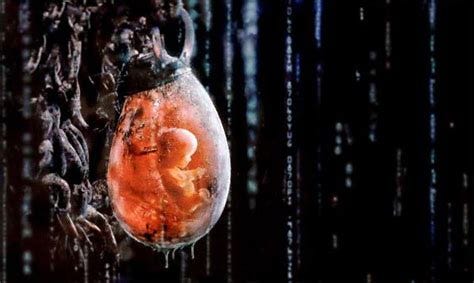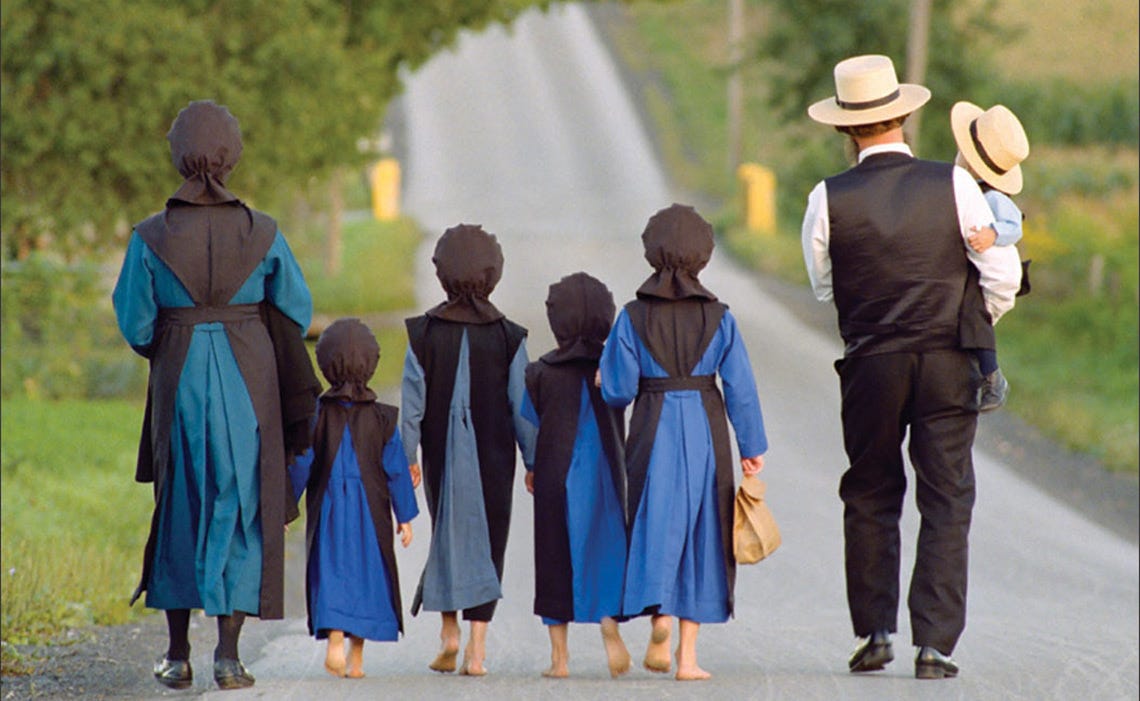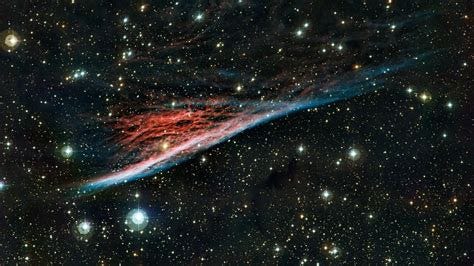
It seems as if the survival of the human race is always threatened. Whether we’re concerned about the latest pandemic that looms on the horizon, a solar flare that ends all modern technology, the next life-ending asteroid, the threat of nuclear war or the dangers of global climate change, humans are routinely concerned, often obsessed, with the idea of the survival of our species.
Although the particulars have changed it’s hardly a new worry. Apocalyptic prophecies and imagery abound in antiquity. Our ancestors also worried about the end of the world. Certainly, they may have worried more than we do about mundane things like famine or if winter would ever end. No doubt some of our more eschatological and theologically-minded ancestors were very worried about being devoured by giants and monsters, or about their moral standing before a righteous, wrathful deity come to judge all things.
They probably didn’t think much about when the oceans would rise. And they certainly would have welcomed shorter winters, being more concerned about food than the implications of an absence of snow. But I imagine humans have thought about the topic for as long as we have had consciousness.
The little considered fact is that all of us alive today trace our lines to the deepest darkest ages of our shared past. It is indeed amazing that we remain in existence as a species. We study human history and marvel at the ingenuity and resilience of our ancestors, from early life forms to proto-human hominids to modern man. Humans have survived predators and ice ages, pandemics and modern war, election cycles and social media; even food from street vendors and distracted driving.
But our continued concerns about war, famine and global climate change suggest that like our innumerable but resilient ancestors we still understand, on some basic level, that survival matters.
However we forget that despite all of this, despite our resilience, our blessings or luck as you wish, there is an absolutely fool-proof way to end the human race, and along the way make our gradual demise even harder than necessary.
We can simply stop making humans at all. Or at least, stop making them in sufficient numbers to keep us all happy, safe and healthy.
There’s long been dynamic tension between the ancient human instinct for survival and procreation and the modern desire to limit human populations.
Well maybe not that much tension. On the limitation side, we’ve done a bang-up job as global populations have fallen for decades and many nations are now in demographic free-fall. Paul Erlich’s 1968 book, “The Population Bomb,” helped shape this move towards concerns and policies regarding earth’s human population.
The ideology of overpopulation was not new, but it took hold of the modern mind, and is at least in part a cause of the tendency of modern societies to be anti-natalist. Further, for a variety of reasons other than population ideology we have concluded that children are problematic.
And they are.
Having and raising children is not for the faint of heart. I mean, in the old days your parents and grands could opine about the wonders of parenthood and you’d just nod your head and agree, then start your own little pack. The Internet has made it all too easy to understand that not all parenting experiences are positive. (And has also allowed us to watch videos of deliveries. I’m a physician and I still think it’s unsettling.) Prosperity and technology have made also made reproduction seem less important.
The bottom line is that women and men alike are avoiding parenthood. In the US alone, birth rates have reportedly fallen 17% since 2007. https://www.upi.com/Health_News/2024/08/20/us-births-decline/8281724164435/
The reasons that both sexes are hesitant to reproduce are numerous and frequently quite understandable. Women are hesitant to bear children because they are typically expected to do the majority of childcare; and this is not only difficult but can be professionally limiting. Women sometimes avoid childbearing because their men are selfish, lazy or unreliable. Or drug or porn addicted. I can see why they would hesitate.
Men may feel that their women area also poor candidates for motherhood. Having XX chromosomes don’t necessarily make a woman maternal. Or morally sound.
What about other reasons to avoid reproduction? No doubt some potential parents come from terrible family situations and never saw their own parents happy. Or sober. They may be afraid that they will make the same mistakes and cause emotional or physical harm to their own progeny. Others, fearful for the dangers of life, don’t want to introduce children to this world.
Having and raising children is also emotionally difficult. Your blissful nights of sleep end in pregnancy for women and for men when that first child is born. The anxiety of both partners goes on forever. (I speak from experience.) Parents worry about illness, injury, education, relationships and all the rest. In fact, there’s a saying that goes “you can never be more happy than your least happy child.” There’s some heavy truth there.
It’s also physically demanding. Pregnancy and childbirth are physically (and with post-partum depression emotionally) dangerous for women. Raising children not only impacts your sleep but your waking. It requires constant playing (fun but tiring), cleaning, carrying, shuttling, cooking and all the rest, not to mention going to your day job to keep your family in food, clothes and shelter.
And it can have some serious cardiac effects when your toddler stands over your face in a dark room while you sleep, staring for maybe hours, and you wake up with nose-to-nose with the little monster, screaming like the main character in a horror film.
(Photo credit Huffington Post.)
Lately the whole “have a baby” thing has been in the spotlight since a video of J.D. Vance emerged in which he opined about “childless cat ladies.” Politicians have a way of saying awkward things and this was certainly one of them. Hillary Clinton’s famous 2016 “basket of deplorables” comment was much the same. Who knows what goes on in their heads? I imagine it must be hard to walk that fine line between what you’re thinking, what you want to say, and what you need to say.
In response, women and men all over the place have made the point that women don’t need children to have fulfilling lives. Women, they point out, don’t need children at all! Plenty of ladies have very happy lives sans offspring, and with or without their cats. Women have great careers, become captains of industry, cardiac surgeons, combat pilots and everything else, all whilst childless.
Good for all of them. Other women have simple lives, doing simple jobs, perfectly content without offspring; also cool. I’m paraphrasing, but noted feminist Camille Paglia once said that “feminism is each woman doing what’s best for her life.” I like that.
Admittedly, and this is very important, there are many women who cannot have children and this is an emotionally difficult subject. I do not mean to cause anyone distress over something they cannot help.
But as modern, technological civilization moves steadily away from the desire or perceived need to have children, a critically important reality remains. Which is that we actually need human beings. We need lots of them.
As I said above, the world population is falling; precipitously in many places. There are those who may rejoice but it’s not a good thing. Because the fact of the matter is, humans make human life work.
https://www.bbc.com/news/world-53424726
When we wonder why our restaurant meal takes so long, why the grocery shelves are empty, why the power lines aren’t repaired quickly, why there aren’t paramedics for the ambulances, nurses to give your aging mom medications or doctors to do surgery, some of that is that there aren’t enough people doing those things. That may or may not be due to population alone. But given enough time and decline, it will be.
And when we someday lose a war we should have won, it might well be because we didn’t have enough surplus humans to go forth and defend the country. Wait and see how this impacts Ukraine and Russia.
Of course, I’m neither an economist nor a population researcher. And all of this is an obvious oversimplification, but as time goes on with fewer humans, these sorts of things will be bigger variables in the survival equation.
Moreover, and this is key, when we wonder why cancer isn’t cured, or why there aren’t artificial kidneys, or interstellar travel or nuclear fusion, part of that is because we need people working on ideas and implementing them on the ground. The fewer humans we have, over time, the less human innovation we will enjoy.
AI (and robotics) just isn’t there yet. As it grows the odds are good that all of its innovative output will be owned by the very rich people who develop and manage the AI. It probably won’t be a benevolent servant of mankind, but rather a tool of the ultra-rich that amplifies the gap between rich and poor. (But then, I’m a Boomer, so what do I know? I still distrust Commies and miss phones on the wall.)
The great things we enjoy in this era, this incredibly rare era of relative peace, safety and prosperity, were brought to you by those gross, problematic human beings that “infect” the earth. We’ve done such a great job of convincing ourselves that humans are the problem that we’ve forgotten that humans are not only the solution but the reason why a solution matters.
It’s all well and good to wish for fewer of us so that things are nice for the fortunate few that remain. But as human populations fall steadily, those few won’t remain fortunate, safe or happy for long.
I thought about this last week while Jan and I were watching “Avengers End Game.” In the film Ant-Man, played by Paul Rudd, visits a vast memorial for those “snapped” out of existence by Thanos, who erased half of the living things in the universe to make it more sustainable. (A problematic story line but that’s for another day.) But even that scene was wrong. With half of all people erased, who would even build monuments? And when? They’d all be busy fighting starvation. Thanos was kind of a moron.
There is also a more poignant and immediately evident reason for humans to have more humans. And that is, we grow old, sick and weak and need connection.
I have heard no small number of people tell young adults, “don’t have children, spend your money on yourself and enjoy your life!” Indeed, these days in the prosperous parts of the world, humans can live remarkably fun lives of travel, dining and relaxation without children. As long as you’re healthy and have money, it’s a great gig.
But you always have to “pay the piper.” And one of the ways you’ll pay the piper is that when you’re old and alone, afflicted and immobile, you’ll absolutely have to pay people to help you. The state will not be nearly as interested in you as you think. Besides, there won’t be enough people to do that sort of difficult and frustrating social work anyway if the population continues to fall.
From an evolutionary standpoint, we care most about those related to us. It’s a survival mechanism. (The question of altruism is complicated and I’m not really well informed to discuss the evolutionary theories about it. We do take care of strangers, but probably with less dedication and passion than those genetically connected to us.)
In my work in the ER, we see are seeing more and more middle aged and senior patients who are alone. I mean completely alone. Some have family far away but many have nobody. They have no relatives to call. Part of this is the fact that people live much longer and may outlive their connections. Part is that they have bad relationships or family who do not feel an obligation. Occasionally, they were not nice people and their family is done with them. But sometimes, it’s simply that they had no children. (Of course, this doesn’t mean it was their intent, but the impact is just as real.)
Those with children, and grandchildren, have more options. They have more people to stay with or even visit them when they are hospitalized or perhaps living in a facility. This gives them material, spiritual and emotional support through the power of connection. It also gives them advocates to stand for them when nobody else will. Having an advocate, in my experience, is essential. The effect of larger families even reaches out to childless family members as children will help uncles, aunts and others.
Some will say that their “fur-babies are enough.” Fair point. I love our dogs and with respect to all cat-ladies, I loved our cats (RIP, Frodo and Leo…I’ll tell their tale of woe sometime). But for all their dedication to us, our animals cannot give us support in our old age, other than a nuzzle and a snuggle, or a bark at strangers. Or in the case of service dogs, very specific assistance. They are wonderful. They help our mental health. But a cat or dog will not help their owners to stand up when they fall in their home and will not change their linens when they are bed-ridden and incontinent. They will not manage their owners’ money or talk to the doctor for them. They will not offer rides to family events or to necessary appointments.
“What’s that Lassie? Uncle Rick needs a refill on his antihypertensive and a ride to his therapy appointment! Good girl!”
Here’s an inviolable truth.
Humans care for humans.
It is a very beautiful thing to watch the many extended family members of my Appalachian patients stream into the ER when a loved one is sick…and especially when they are dying. Such breathtaking connection and comfort, such love, is freely given. It is born of the holy fusion of DNA and something more ethereal; a connection of spirit and antiquity. That sort of thing cannot be purchased. And it is available to rich and poor alike, wholly democratic in its availability.
I want people to do what’s best for their lives. I’m not suggesting that anyone should be compelled to reproduce, nor that they are bad people if they don’t have children. However, I think everyone needs to consider the implications of the decision.
We talk endlessly about the negative consequences of having children. We have all sorts of birth control to help people who don’t want to reproduce, either temporarily or permanently. But we seldom discuss the consequence of choosing not to have children; whether from an individual or societal perspective.
While I think I have demonstrated my agreement that women don’t need babies to live fulfilling lives, the fact remains that countries, societies and civilizations actually need women, having babies, to survive.
Because only women, impregnated by the genetic material of men, can produce human beings. So far we have no other way to make people. There are no “baby pods.” There are no “test tube babies” brought to term outside a human uterus. This is not an issue of the patriarchy. It has nothing to do with the Republican party. It is not in any way related to Donald Trump. The Supreme Court did not rule on it. It is human biology.
We count on humans to have ideas, bring them to reality and put them into practical use. Now, prosperous societies can put the burden of reproduction on immigrants (many immigrant groups do have higher rates of reproduction than, for instance, native born Americans or Europeans). This is a solution; for a while.
Once those groups attain prosperity, some of them change and have far fewer children. Not all of them stop though. In fact, their behaviors, and the behaviors of others in our society who have large families (for instance Amish and Orthodox Jewish families) may have the power to determine the ideological direction of our country. Demographics are a big part of destiny.
Maybe, instead of suggesting that having children is a burden, a weakness, a financial drain or a weapon against the planet and humanity, we might shift. We could start to once more to tell our young people that pregnancy and parenthood are noble and important activities. That these are appropriate uses of our bodies, our time and our treasure. This, however, would require that we see humans and human output as unique and valuable.
We certainly have to make this financially viable for families so that nobody is fiscally harmed for making the very thing we need most to move forward. We need to reward, not punish, those who have and raise children. And we have to emphasize responsibility to both young men and women so that they are more likely to maintain intact families; a thing tied over and over to societal and individual well being and to the thriving of children.
Early in life we should explain clearly that one’s decision to have children, or not to have children, are both weighty things that will have costs down the road. And we shouldn’t shame or dissuade those who say, at an early age, “I think I want a family.” Since all of our careers end, and we all die, the goal of a family is not one bit less important or rewarding than the goal of having a thriving business, an advanced degree or a vast amount of money.
Finally, and I think about this a lot, it is an amazing thing to be part of a sentient race on a planet that is, for all we know, the only locus of life in the solar system, in the galaxy and for all we know right now, the universe.
Perhaps life here, our human life here, is the seed meant to populate the cosmos. Put that way, humans have an unfathomably important role to play down the eons. And the production of humans, by humans, is more than mere survival. It’s a thing of epic destiny for all.
So have children or don’t. That’s up to everyone individually. But either decision has consequences more vast than we imagine.
Edwin








Another thoughtful article. One of the problems with dwindling birth numbers is that what might be good for society, may not be good for the individual (see Prisoner's Dilemma for game theory on this point). Many times, those who are most able to afford having many children, don't feeling that with fewer children, they can spend more time (and resources) on the one(s) they have. To your cohort of families with large number of children, I would add observant Catholics, and members of the Latter Day Saints (commonly known as the Mormons). Unfortunately, neither immigration nor financial incentives (see Japan, for example) will solve the underpopulation problem. Finding ways to reduce menial work, whether through AI, robots, or re-engineering tasks, might help to encourage people to have more children, as their incomes, satisfaction with life, and discretionary time will help. If we are able to reduce childhood mortality, especially in countries where the birthrate is population sustaining, through better distribution of medical care, that would help, as well.
Thank you for another though provoking article. You make a good point about how many of our elderly patients do not have offspring to care for them.
I think that you make a jump in logic. Not having enough specially trained people to perform a particular task does not necessarily mean that we do not have enough humans on the planet. That's a non sequitor.
You know very well that we do not have enough physicians to serve all patients. Instead, patients are being treated by well-meaning but poorly trained non-physician midlevel providers. The answer is to train more people to perform needed tasks, not produce more mouths to feed. That seems unnecessary. What we need is more and better training of humans.
Our planet's current human population is over 8 billion. Our environment may not survive the assault of so many carbon dioxide waste producing beings. The planet would do just fine with 3 billion people.